The Top 5 Strategies – Getting Your Prospect to Respond
The Top 5 Strategies – Getting Your Prospect to Respond
In my sales coaching sessions with various clients I’m often asked for the top strategies for getting a response from a prospect. My response is invariably “follow up, follow up, follow up!” One phone call, does not make a sales person successful. So here are my top 5 strategies for following up and getting your prospects to respond.
- Do Your Research
Researching your prospect is important and we reinforce this in all our sales coaching sessions (we won’t call it professional stalking, but you get the idea). Before any discussions you have with a potential prospect you should arm yourself with background research gathered from the likes of LinkedIn, Facebook, business websites, google search results, your company CRM etc. Anywhere that you might be able to gather information to get your foot in the door and getting your prospect to respond, helping you personalise your conversations and make an impression for the follow-up call.
- Create a Personal Connection
When you’re communicating with a prospect, be it over the phone, online or face-to-face, the importance of creating a personal connection cannot be understated. Creating a connection builds rapport which in turn builds trust. Your background research should assist you with finding a common ground or connection, something meaningful that digs a little deeper than a chat about the weather and will help you stick in the prospect’s mind. In our sales coaching sessions, we conduct role play activities around rapport building questions that focus on the prospect’s education, career, place of work or location. Remember you want to be personal, but make sure you keep it professional.
- Be Professionally Persistent
Rejection is part and parcel of a salesperson’s daily life and we often recreate rejection scenarios in our sales coaching sessions so that you get conditioned for rejection. There’s no getting past it, but you can get through it. Because in reality, most often no doesn’t mean no. No might mean not right now, but don’t assume it means no forever. Research has shown that you’ll get four no’s before you even get close to a yes. If you’re good, you’ll have convinced your prospect that it’s beneficial for them to allow you to follow up. If that’s the case, then do as you say and follow up. Use phone and email as interchangeable methods of communication, you can’t be guaranteed an email will be read, similarly you can’t be sure that they will listen to your voicemail message. So, swapping between the two allows you to cover more bases. Remember professional persistence is the key (not downright peskiness).
- Call Outside of Obvious Times
Another hotly debated topic during my sales coaching program is what day and what time of day should you call to receive a response. There are many different theories, but my years of experience have found Wednesday and Thursday to be the best days to call. Monday and Tuesday people are head down, getting into their working week and Friday they’re too focussed on making their way out of it. The best time to call is between 4pm and 6pm. The day is drawing to a close and prospects are often more open to being interrupted. That being said, I also like to call outside of obvious times. 7am-9am you might catch them in the car or on public transport and looking for a distraction.
- Offer Value
What does this mean exactly, to provide value? How can you offer value to a prospect when they keep saying no? If you’ve followed steps 1-4 over time you will have built a rapport with your prospect. What you want to do is become a trust advisor, not a hounding salesperson. You’ve identified they have a problem, it’s now up to you to make them realise that you and your product/service are the solution. Actively listen, provide knowledge about their problem, offer your expert advice on your product/service and give your time. Sales Coaching is one of the programs we offer at Dynamo Selling, if my prospect doesn’t understand how this would work in their business, I take the time to understand their business needs, find their weaknesses and show them how sales coaching will help play to their strengths.
No-one said sales would be easy. Unanswered emails, rejected calls, slammed doors. It’s definitely a confidence killer. But sales is all about making mistakes, continually learning and working hard for success. All those “no’s” make the “yes” so much sweeter.
Thanks for reading this article on “Getting Your Prospect to Respond”

